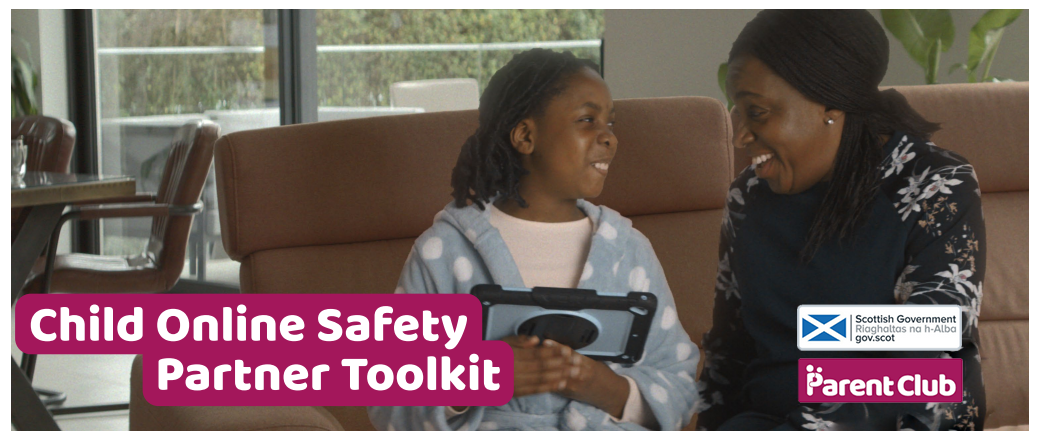Online safety
The internet, mobile technologies and social media all provide children and young people with vast opportunities for learning, communication and support.
However, increasing reliance on online technologies also makes children and young people potentially vulnerable to people seeking to exploit technology for malicious purposes.
Risks associated with the digital technology include:
- Exposure to obscene, violent or distressing material
- Bullying, coercion, or intimidation through email, messaging and social media (“cyber-bullying”)
- Sharing personal images without permission
- Identity theft and abuse of personal information
- Exposure to material concerning harm to health such as eating disorders, self-harm or suicidal ideation
- Sexual exploitation by online predators (including grooming, sexting and sextortion). In the worst case scenarios children and young people who have been targeted and subjected to sextortion have taken their own lives.
Parent Club's Child Online Safety campaign
Parent Club offers up-to-date guidance from the Scottish Government on children’s health and education. Read about their Child Online Safety campaign and find some practical ideas and advice to help keep children safe online.
#AskTheAwkward campaign
#AskTheAwkward has been created by the CEOP Education programme, a part of the National Crime Agency's response to tackling child sexual abuse. It helps families to navigate the digital world with secondary aged children and prepare for conversations with young people about online relationships and related topics. It also offers advice on how to keep conversations positive and what to do if your child tells you something that worries you.
Visit the #AskTheAwkward online resource here.
The online Safety Act 2023 is now part of UK legislation and Ofcom are working to implement the Act and new measures designed to address some of the risks and harms associated with online content which children and young people may encounter or be exposed to. The growth of Artificial Intelligence technologies in the past few years has increased the challenges for support and law enforcement agencies in this area.
Key resources
National Guidance for Child Protection in Scotland 2023
Parent Club online safety page
National Action Plan on Internet Safety for Children and Young People (Scottish Government, 2017)
Useful links
- Barnardo’s Child Safety on the Internet
- Child Exploitation and Online Protection (CEOP) – where you can report inappropriate, illegal or indecent images involving children
- Internet Matters - backed by prominent internet industry players (e.g. BT, Sky, TalkTalk and Virgin Media), Internet Matters work with national, local and charitable bodies to keep children and young people safe online
- Internet Watch Foundation – where you can anonymously and confidentially report child sexual abuse content and non-photographic child sexual abuse images
- NSPCC what is online abuse?
- NSPCC online safety advice
- Ofcom Protecting Children
- Police Scotland Keep Secure Online
- Stop it Now! - UK and Ireland child sexual abuse prevention campaign and Helpline Call 0808 1000 900
- ThinkUKnow – a CEOP website with resources to download on child internet safety for use by children, parents/carers and teachers/trainers
- The UK Home Office supported steering clear campaign which advises on the law around the sexual images of children



